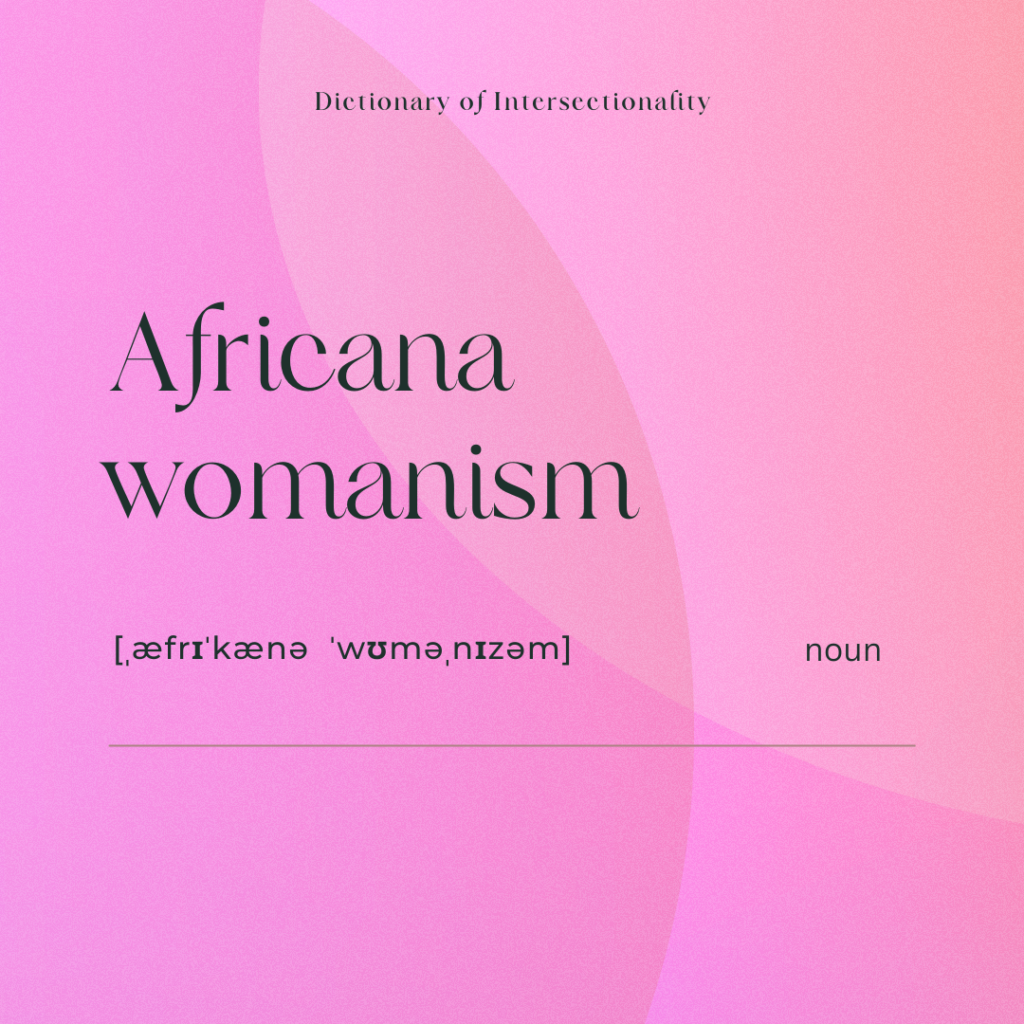
Africana womanism, an African theoretical concept that is family-centered and focuses on women’s concerns only after the community’s needs are met, provides a different lens for research and activism.
Key aspects are overcoming “privilege” and racial dominance, and realizing the benefits of true cultural diversity.
It takes a central and critical role in the effort of continuing to recover, historically and culturally.
First conceptualized and articulated by Hudson (Weems) over 30 years ago, Africana womanism encompassed 18 characteristics listed by the Africana Womanism Society referring to Africana womanists:
Who she is – Self Naming, Self-Defining, Spiritual, Whole.
How she functions – Mothering, Family-Centered, Nurturing, Genuine in Sisterhood, Male Compatible, Respectful of Elders.
How she is viewed – Respected, Recognized, Strong, Authentic.
How she works in the world – Flexible Role Player, Adaptable, Ambitious, In Concert with Males in the Liberation Struggle.
By integrating African and Black feminisms, which are grounded in the multiple oppressions that Africana women historically and currently face, these multiple perspectives from Africana women increase the understanding of gender dynamics. In many African communities, gender roles were atypical from Western contexts prior to and during colonialism. It is one perspective that represents gender dynamics prior to colonialism and sees individual needs as colonial, patriarchal, and Westernized concepts.
Africana womanism distinguishes itself from feminist approaches and focuses more on racial realities and injustices. A feminist perspective may not adequately represent the perspectives of Africana women as many embrace their roles of nurturer, protector, and provider for their families. Womanism, as a family-centered concept, aims to empower the entire Africana family versus the female-centered concept focused on female empowerment.
See more resources
Retrieved on 20th of April, 2023 from https://journals.sagepub.com/doi/epdf/10.1177/002193479802800501
Retrieved on 20th of April, 2023 from https://www.sciencedirect.com/science/article/abs/pii/S0016718518302872
Retrieved on 20th of April, 2023 from https://research.auctr.edu/c.php?g=987129&p=9309685
Retrieved on 20th of April, 2023 from https://www.cambridgescholars.com/resources/pdfs/978-1-5275-8564-5-sample.pdf
